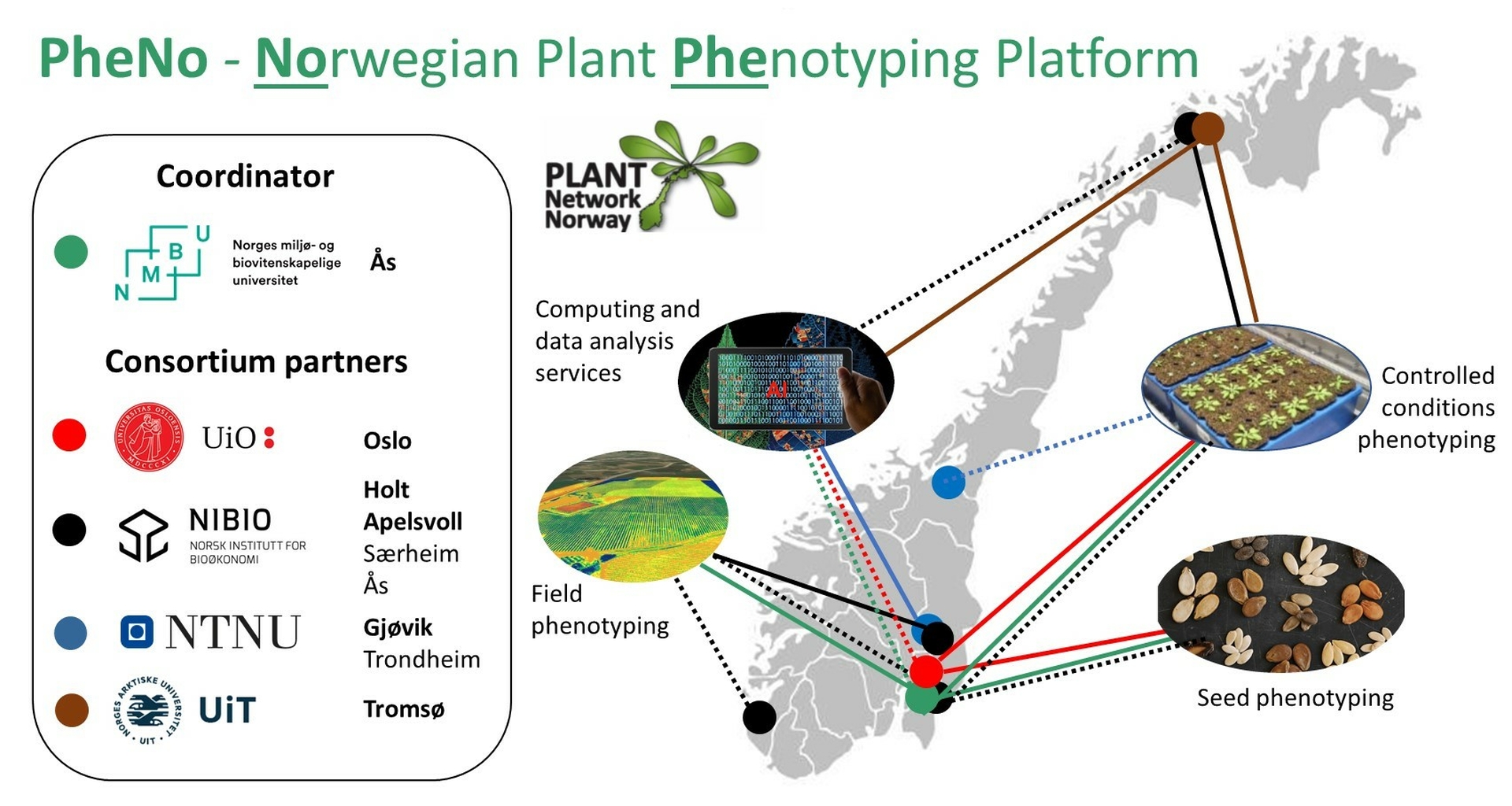Norway: Application submitted for the Norwegian Plant Phenotyping Platform (PheNo)

The plant research community in Norway has joined forces and submitted a national infrastructure proposal to establish the Norwegian Plant Phenotyping Platform (PheNo).
– Our aim is to provide the Norwegian plant research and industry communities with state-of-the-art facilities for high-resolution plant phenotyping under controlled growth conditionsand in the field as well as for seed phenotyping, says project coordinator Morten Lillemo at the Norwegian University of Life Sciences (NMBU).
Despite a great demand from national and international users, Norway does not have a national plant phenotyping infrastructure. By filling gaps in the Norwegian as well as the European plant phenotyping landscapes, PheNo will become a Norwegian node in EMPHASIS and provide phenotyping under unique Norwegian conditions.
PheNo will be a distributed national infrastructure (see image, click to enlarge) equipped with reliable and well-proven phenotyping solutions that can serve the needs of both basic and applied plant science research and industrial applications in plant cultivation and breeding. Realizing that both research and industry need reliable and affordable phenotyping solutions, the focus has been on selecting technology that is easy to operate, update and with affordable running costs.
PheNo will bring together the leading national expertise on plant phenotyping, represented by major plant research universities and institutes in Norway. The unique expertise and geographic locations of the partners enable us to cover all major aspects of plant research across the country to serve needs in science, education and translational research and to address societal challenges:
- The Norwegian University of Life Sciences (NMBU) with long traditions in agricultural research and excellent growth facilities for both controlled and field environments with main focus on crop plants, plant breeding, plant physiology, disease resistance, seed phenotyping, image analysis, robotization and automation. NBMU will be the project coordinator and the main hub for field and seed phenotyping.
- The UiO:PlantLab at the University of Oslo (UiO) with state-of-the-art controlled environment growth facilities and main research focus on basic plant biology will be the main hub for controlled environment phenotyping and seed phenotyping of small plants and model species.
- The Norwegian Institute of Bioeconomy (NIBIO) Center for Precision Agriculture with long experience in precision agriculture and remote sensing will be hosting field phenotyping facilities suited for applied agronomic research.
- Climate Lab Holt, co-managed by the Arctic University of Norway (UiT) and NIBIO is the northernmost daylength phytotron in the world located close to multiple field trials, making it an ideal location for conducting plant research under the unique high latitude light conditions. It will host a highly flexible system serving needs for phenotyping both wild and cultivated species under arctic conditions.
- UiT with leading data management expertise will maintain the central data storage for the PheNo and coordinate the project data management in cooperation with the local nodes.
- The Norwegian University of Science and Technology (NTNU) with internationally recognised expertise in deep learning, image processing and IoT sensor networks will host the central data analysis and computing hub for the project.
More details about the planned infrastructure may be found in the EMPHASIS country profile of Norway.
Image: Distribution of PheNo nodes with phenotyping installations indicated by solid lines. Dashed lines indicate partner locations that will benefit from the services.
